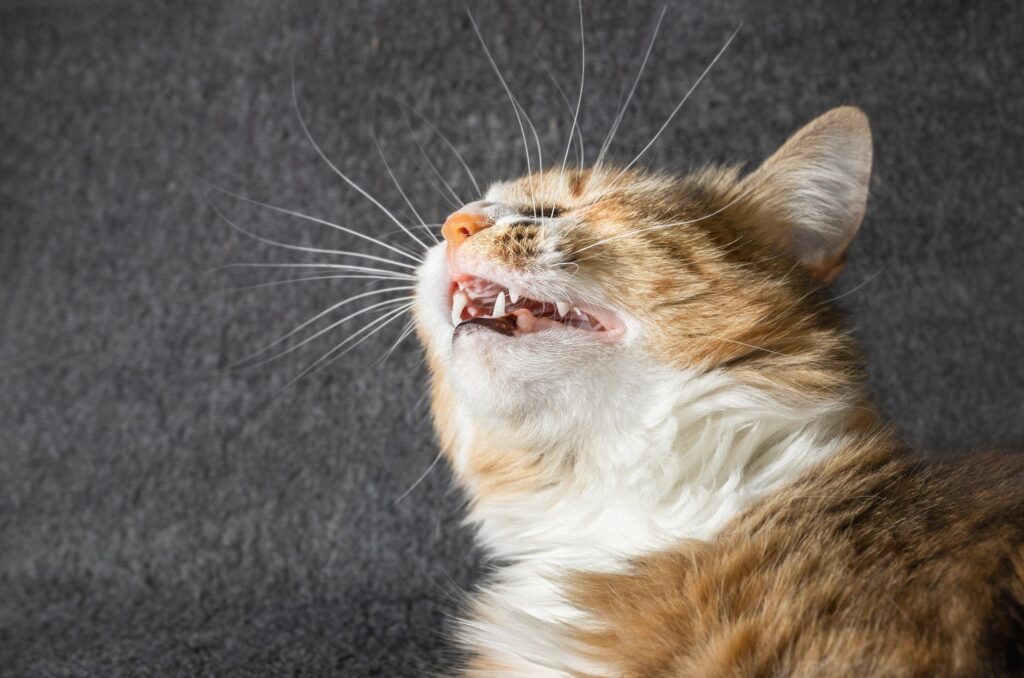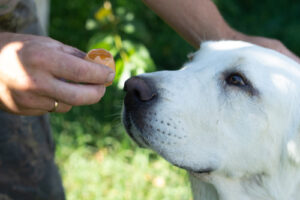When your cat suddenly starts making strange, honking noises, it might startle you. This could be something called reverse sneezing in cats. It sounds serious, doesn’t it? But before you start worrying, let’s talk about what this actually means for your cat. This blog will explore what reverse sneezing is, why it happens, and when you might need to get help from a vet. If you’re ever unsure or concerned about your cat’s health, Loveland Regional Animal Hospital is here to assist. You can reach out to us at (513) 697-9796 to learn more or to schedule an appointment. Our team is always ready to support you and your cat with any health concerns.
What is Reverse Sneezing?
Reverse sneezing in cats is quite different from the regular sneezes we’re familiar with. Instead of expelling air out, your cat will inhale air rapidly and noisily through the nose. This can look alarming, but it’s often not a sign of anything serious. This reflex is usually triggered by irritation or inflammation in the nasal passages or the back of the throat.
During a reverse sneeze, your cat might stand still, extend its neck, and make a series of loud snorts. This can last for a few seconds to a minute. Afterward, your cat will likely carry on as if nothing happened. While it might look and sound scary, reverse sneezing episodes are typically harmless and resolve on their own.
Causes of Reverse Sneezing
So, what gets a cat to start reverse sneezing? There are a few common triggers, such as allergens (like dust, pollen, or perfumes), viral infections, or even a sudden change in temperature. Sometimes, a particularly active play session or excitement can cause a cat to reverse sneeze. Other times, it might be something more irritating, like a foreign body stuck in the nose or throat.
Understanding these triggers can help you identify potential allergens in your home or notice if something more serious could be causing your cat’s symptoms. However, pinpointing the exact cause can be tricky without professional help.
When to Contact a Vet
While reverse sneezing in cats is often not a cause for alarm, there are times when you should reach out to a vet. If the reverse sneezing episodes become frequent, last a long time, or are accompanied by other symptoms like discharge from the nose or eyes, difficulty breathing, or a change in appetite or behavior, it’s time to call Loveland Regional Animal Hospital.
These signs could indicate an underlying condition that needs medical attention. Our team can help diagnose the issue and provide the right treatment to make your cat comfortable again. Early intervention is key to preventing more serious complications.
How Veterinarians Can Help
If you bring your cat to Loveland Regional Animal Hospital for reverse sneezing, our team will start with a thorough examination. We might ask about your cat’s history, look into their environment, and perform some tests. This could include blood work, x-rays, or even a nasal endoscopy to look for any abnormalities.
Treatment will depend on the underlying cause. If it’s an allergy, we may recommend changes in your home or prescribe medication. For infections, antibiotics might be necessary. And if there’s something stuck in your cat’s nose or throat, we’ll carefully remove it.
Living with a Cat Who Reverse Sneezes
Understanding reverse sneezing in cats can help you feel more prepared if it happens to your pet. Remember, occasional episodes are usually nothing to worry about. Keeping a record of when the reverse sneezing occurs can help you identify any patterns or triggers, making it easier to avoid them in the future.
If you’re ever in doubt or if your cat shows signs of distress, give us a call at (513) 697-9796. Loveland Regional Animal Hospital is here to provide the care and support your cat needs to stay healthy and happy. Whether it’s reverse sneezing or any other health concern, our team is dedicated to helping you and your pet navigate their health with confidence.
Caring for a cat means being attentive to their needs and understanding when something out of the ordinary happens. Reverse sneezing in cats might catch you off guard the first time you witness it, but knowing what it is and when to seek help can make all the difference. Always remember, we’re just a phone call away, ready to assist with your cat’s health needs.





